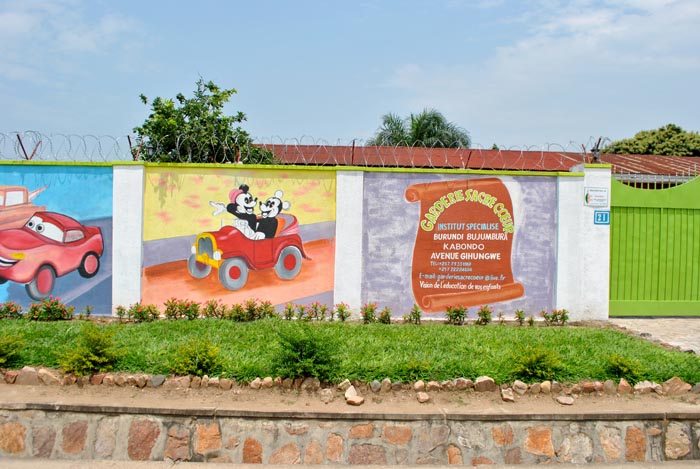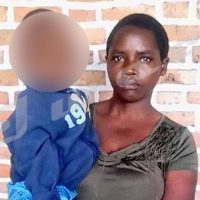Down’s syndrome is not a disease but rather a congenital malformation due to the presence of an extra chromosome. It causes various physical symptoms and mental disabilities in most cases. However, with proper care and enough knowledge, the child can show tremendous improvement and even aspire to a professional life in the future-by Joanna Nganda
“Children with Down’s syndrome are easily identified, they have round heads, and typical facial
features; they look like Mongolians but are not from Mongolia. They stay quite short and sometimes present hand deformities. Moreover, they have noticeable learning difficulties, which does not mean that they can’t learn anything!” says Immaculée Segahungura, who has a 30 year- experience with children with Down’s syndrome.
In Burundi, most children with Down’s syndrome are hidden and kept home, away from people and peer interactions. Immaculée Segahungura expresses her feelings: “do you know what revolts me the most? It’s the fact that some parents give privilege to their ‘normal’ children then forsake the ones with Down’s syndrome.”
She points out that healthy children already have all the tools and opportunities to become successful, whereas children with Down’s syndrome are deprived of most keys to a successful life. Therefore, they should be the ones to get more help from the parents. “Hiding and isolating them will cause deep depression and deprive them of the slightest stimulating activity,” says Immaculée Segahungura, expert in Down’s syndrome and Owner of the newly opened “Garderie Sacré Coeur” at Kabondo, Bujumbura.
Alain-Patrice M., father of a 15 years old girl with Down’s syndrome, admits that he used to hide his daughter from curious eyes. “My wife died when our daughter was 3 years old. I had no idea how to take care of her or even how to console her, those are motherly things. So, to avoid her being teased all the time, I decided to keep her home and hire a maid to do her cleaning and feed her,” he explains.
Besides discouraging these kinds of behavior, Immaculée Segahungura says that the child with Down’s syndrome misses out on a lot by staying indoors and away from people.
“In 3 weeks, I have noticed tremendous changes in the children that I care for. They don’t drool anymore, the ones who arrived with bad hand deformities can now hold a mug by themselves when they used to drink with a straw, they greet people politely, are able to play with their mates, and learn how to live in a clean environment, etc… Having a child with Down’s syndrome should not be a shame. Stimulating them daily can change their life for the better,” states Immaculée Segahungura.
She also says that her ultimate goal is to give the children some independence: to learn how to do their daily personal hygiene is the basic. Also, pinpointing their individual talents is essential in order to work on them, improve and make them a potential professional choice for the future.
“Children with Down’s syndrome are children like others, with their own personalities and emotions. They need a lot of attention, affection, and a special environment adapted to their needs. They need to be constantly stimulated to avoid their brain activity to snooze and decrease,” explains Immaculée Segahungura.
She also stresses that it’s never too late to improve them intellectually. She strongly encourages parents and/or tutors to intellectually stimulate their children and avoid hiding them which, she says: “it is nothing less than torture when one knows how they suffer from loneliness, they can feel they are being isolated and get depressed, behave badly and turn the whole house upside down. Now, there’s a specialized institute for them in Bujumbura, there’s no more excuse not to take proper care of them.”
Legend
“Garderie Sacré Coeur”, Daycare Specialized Institute for Children with Down’s syndrome




















 IWACU Open Data
IWACU Open Data

